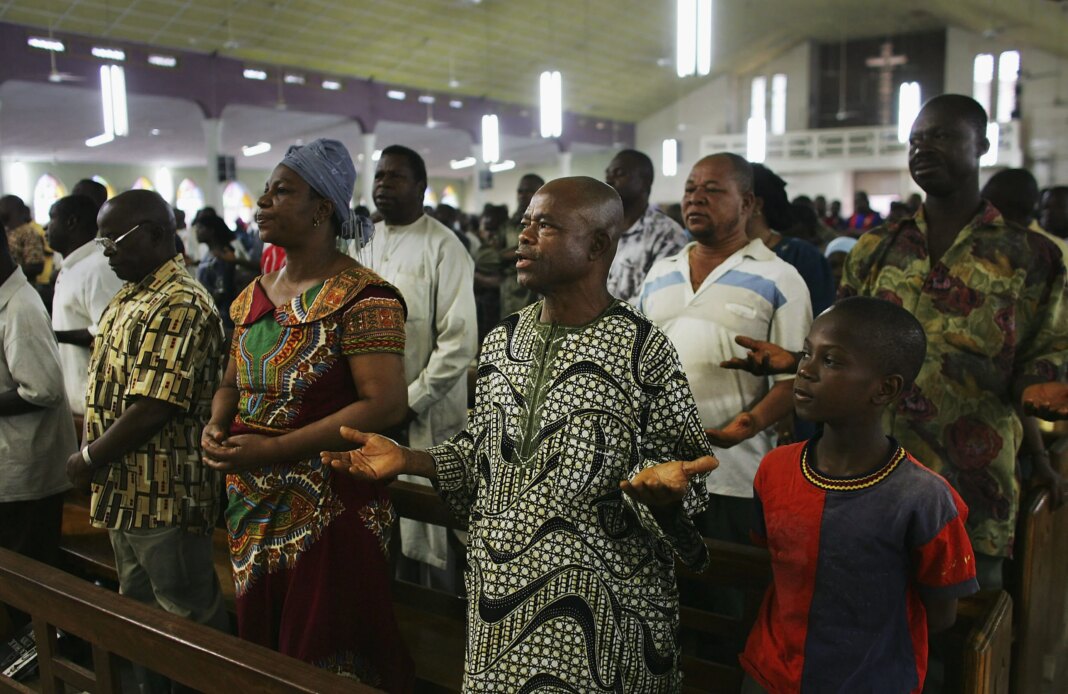Rising Tide of Violence in Nigeria: A Nation on Edge
In recent months, Nigeria has been engulfed in a disturbing wave of violence that shows no sign of abating. Reports indicate that both Christian and Muslim communities are caught in a relentless cycle of attacks, leaving survivors grappling with trauma and a deep sense of vulnerability. As communities struggle to comprehend the scale and nature of the violence, it becomes clear that this crisis transcends religious boundaries, affecting individuals from every corner of the nation.
The Underlying Causes of Conflict
The complexity of violence in Nigeria is rooted in a myriad of factors. Ethnic tensions, political instability, and economic hardship intertwine to create a volatile environment. The ongoing conflict involving herders and farmers, particularly in the Middle Belt region, has intensified, often taking on a religious dimension. The roots of these clashes can often be traced back to land disputes, climate change, and historical grievances, but religious identity increasingly colors the narratives.
The Impact on Daily Life
Survivors of these violent encounters speak hauntingly of their experiences. In various interviews, individuals described the trauma of losing loved ones, homes, and livelihoods. Imagine waking up to the sound of gunfire, not knowing whether the next moment will bring life or death. Amid this chaos, markets, schools, and places of worship, which should be sanctuaries, are frequently left vulnerable. Parents recount the distress of not knowing whether their children can safely attend school, highlighting the omnipresent fear that permeates their daily routines.
Personal Stories of Survival
Take, for instance, the story of Amina, a young Muslim woman from Plateau State. During a raid on her village, she lost her brother and witnessed neighbors being attacked. “We thought we could escape it,” Amina recalls, her voice shaking as she recounts rallying her wounded friends to safety. Despite her harrowing experience, Amina’s resilience shines through. “I will not allow this to define me; I need to help others,” she asserts, embodying a spirit of defiance amidst despair.
Conversely, a Christian survivor named John from Kaduna State shares a similar story. After losing his home in an attack, he was left feeling abandoned by the state. “Nobody is protecting us,” he explains. John’s narrative underscores a palpable disillusionment with authorities that many feel have turned a blind eye to their suffering, exacerbating the pain of loss and isolation.
Interfaith Solidarity Amidst Strife
Remarkably, amidst the violence, there have been instances of interfaith solidarity that showcase humanity’s resilience. Communities have occasionally come together, irrespective of religious identities, to provide assistance to one another and to advocate for peace. Organizations are emerging that facilitate dialogue between Christian and Muslim leaders, fostering an understanding that transcends entrenched divisions. These efforts display a willingness to heal and rebuild amid devastation, although such initiatives often face significant challenges.
The Role of Government and Security Forces
Critically, the response from the Nigerian government and security forces has come under scrutiny. Many survivors criticize the alleged incapacity or reluctance of authorities to tackle the violence effectively. Reports indicate that, despite promises of increased security and military presence in affected areas, many communities still live in fear, questioning whether these measures are merely temporary fixes. The call for accountability and transparency from security forces grows louder, reflecting a larger desire for meaningful change rather than empty assurances.
International Implications
International interest in Nigeria’s plight is also increasing, as the fallout from this violence resonates beyond its borders. Human rights organizations are spotlighting the need for urgent intervention, urging both regional and global actors to address the humanitarian crisis. As millions are displaced and countless lives lost, Nigeria’s situation risks becoming a humanitarian disaster that could attract international intervention if left unchecked.
The Path Forward: Hope and Healing
For many Nigerians, despite the overwhelming circumstances, there remains a flicker of hope. Community leaders, activists, and everyday citizens are rallying for change, advocating for peacebuilding initiatives that target the root causes of violence. Grassroots movements seek to empower women, educate youth, and ensure that the voices of the marginalized are amplified in discussions about Nigeria’s future. The potential for healing exists, but it will require effort, collaboration, and an unwavering commitment to restoring humanity to the forefront of conversations surrounding this crisis.
Final Thoughts
As violence continues to ripple through Nigeria, the stories of individuals like Amina and John remind us of the personal toll this crisis takes on ordinary lives. With communities tied together by pain and the unyielding search for peace, the hope for a more secure and united Nigeria lies in the hands of its people, who, against all odds, continue to strive for a life free from fear.



